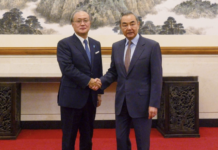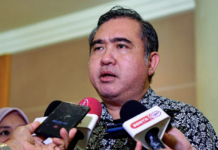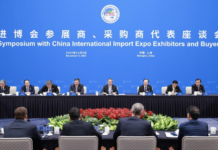KUALA LUMPUR, July 15 — The government will launch the National Energy Policy soon as a guide for the development of Malaysia’s energy sector, particularly as the industry transitions to a low-carbon future, said Minister in the Prime Minister’s Department (Economy) Datuk Seri Mustapa Mohamed.
He said the COVID-19 pandemic gave the energy industry an opportunity to implement major changes and embrace sustainability by adopting environmental, social and governance (ESG) criteria in the oil and gas services and equipment (OGSE) sector despite being hit hard by the pandemic.
“Globally, demand for ESG funds rose 29 per cent to nearly US$1.7 trillion (US$1=RM4.19) in the last quarter of 2020,” he said in his keynote address during the first series of National OGSE Sustainability Forum held virtually today.
In addition to the recently launched the National OGSE Industry Blueprint 2021-2030, the National Energy Policy is also vital to enable OGSE businesses to make the decisions today that will help shape a cleaner, more sustainable future for generations to come.
Currently, there are only 32 local OGSE companies that have adopted sustainability reporting.
Out of this, only one company, Dialog Group Bhd, is on the Dow Jones Sustainability Indices, a benchmark tracking the stock performance of leading companies in terms of economic, environmental, and social criteria.
Mustapa said the low adoption suggests that ESG awareness remains uneven among OGSE players – even among public-listed companies – what more among the less informed small, medium enterprises (SMEs).
To prepare the OGSE industry for the ESG journey, he noted that the players must equip themselves with the right skills and knowledge to navigate the path ahead.
The industry has to keep pace with the changing rules of the game, and today, that means integrating ESG into business practices to stay relevant and competitive, he said.
“We are faced with the reality that those who refuse to evolve – or evolve too slowly – may be left behind, or swallowed by the competition.”
Meanwhile, Malaysia Petroleum Resources Corporation (MPRC) president/chief executive officer Mohd Yazid Ja’afar said the oil and gas (O&G) industry has more pressure to comply with the ESG requirements as the players were at higher scrutiny due to their nature of operations that may have negative impact on the environment and public at large.
“In fact, in the ESG industry report card for O&G published by S&P Global Ratings in February last year, the sector has higher negative exposure to environment and social factors over the short, medium and long term,” he said in his presentation at the forum.
However, Mohd Yazid pointed out that it was not easy for companies to adopt sustainable practices especially for OGSE companies due to the complexities of reporting and assessments, among others.
“We are cognisant of the challenges faced by the companies to adopt these sustainability concept but this is an important step in efforts to transform the sector to be robust and resilient,” he said, adding that MPRC would be identifying initiatives and collaborative efforts to ensure more holistic adoption of sustainability practices for the sectors.
The half-day National OGSE Sustainability Forum is co-organised by the Economic Planning Unit of the Prime Minister’s Department and MPRC.
















